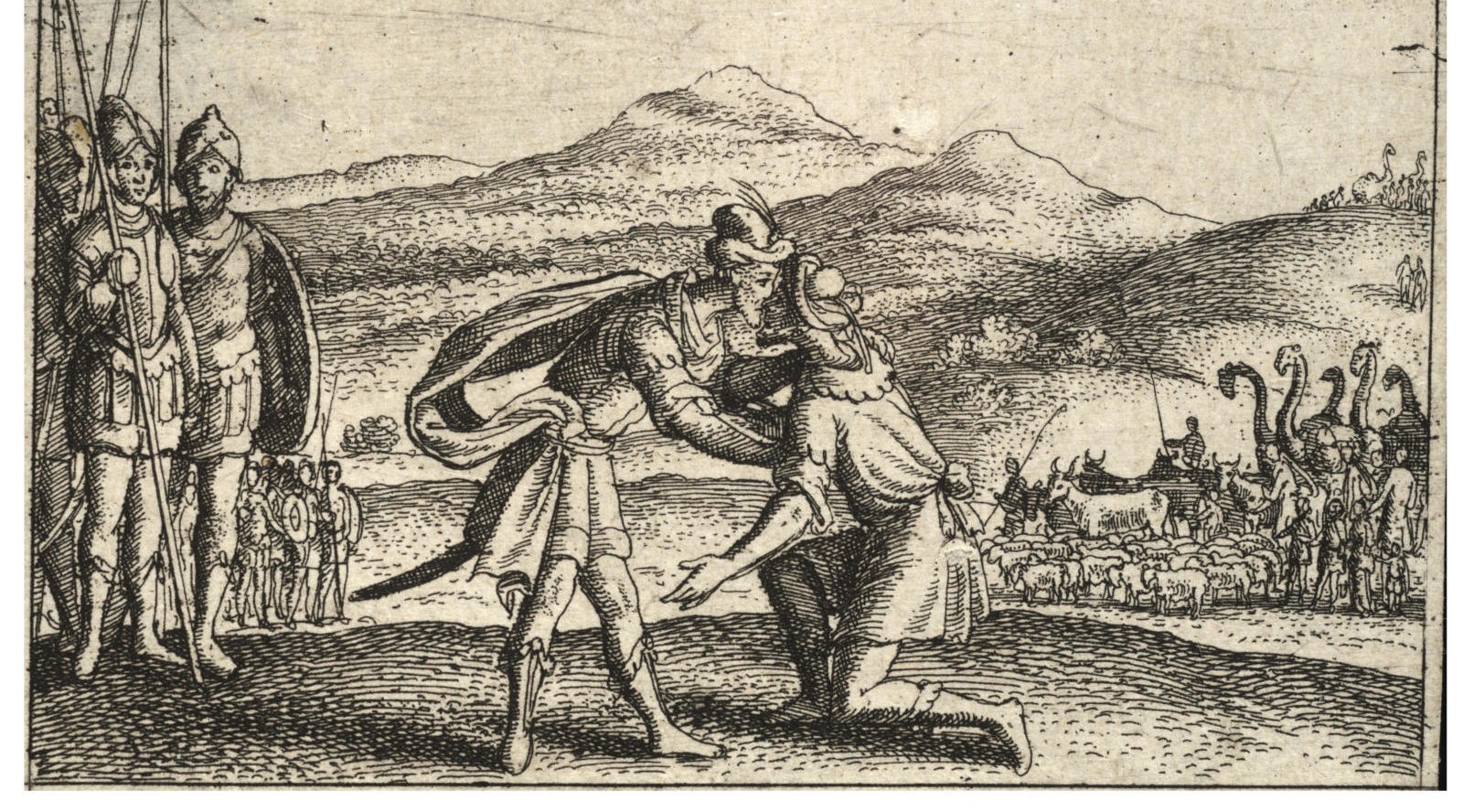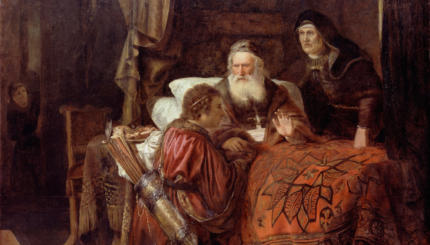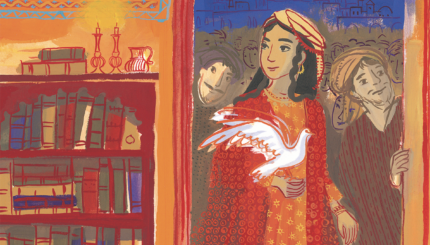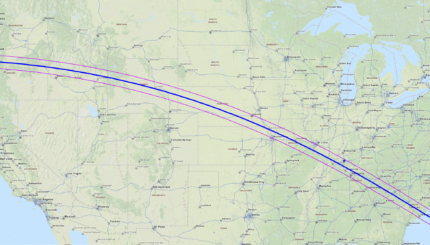Just before Shabbat dinner at The Weber School Shabbaton, Rabbi Ed Harwitz begins his d’var Torah by tossing out a question: “Who cares about Esau?” Most of the students wait quietly for him to continue, thinking it is a rhetorical question. But one 10th grader calls out, “I do! I was Esau!” She is sitting not far from me, and as I look in her direction I see her looking towards me for reassurance.
It was in my class, nearly a year ago, that she spent half of the second semester studying Genesis 25-33 and writing personal narratives in the voice of Esau. At the beginning of the unit, each student is asked to read the text from the point of view of one of the biblical figures, to explain the narrative from their perspective, and to create a playlist of modern music that fits their character’s experiences and attitudes. The student who responded to Rabbi Harwitz was particularly sensitive to Esau’s plight: favored by one parent and betrayed by the other, demonized for centuries by the early rabbis and medieval biblical commentators as the progenitor of the Edomites and later the Romans, enemies of the People of Israel, the descendants of his brother Jacob, the favorite son. She remembered so much of what we’d learned–had acquired a deeper understanding of this material–because she’d brought the Torah to life with her words of personal narrative, along with carefully chosen song lyrics.
As we walk to dinner, I check in with her and thank her for making my night. It’s a teacher’s dream to have a student recall a lesson a few weeks later, let alone nearly a year later.
The following Friday afternoon, I learn from a friend that our beloved teacher, Rabbi Neil Gillman, has died. In the hour before candle lighting, Facebook is flooded with posts from classmates and colleagues about how he influenced generations of students over the course of more than five decades. I recall the only course I took with Rabbi Gillman, in my final year of rabbinical school, in which he encouraged us to write our own Midrashim, short stories, and poems from the perspective of a misunderstood or voiceless biblical figure.
As we reminisce about a course we took 25 years ago, I realize Rabbi Gillman was the first teacher who taught me Torah the way I now teach it to my 9th-grade students. As I’ve been designing journal prompts to encourage my students to embrace Torah, I’ve been emulating my earliest mentor in this approach.
Unable to attend the funeral in New York, I spend Sunday connecting with friends all over the country who loved Rabbi Gillman and recalling the rich Torah he bequeathed to us. I return to school Monday morning and share a few stories about my teacher to my students. Throughout the week as his family sits shiva and until the end of the semester, which roughly coincides with the shloshim observance, I will continue to study Torah with them in the ways he taught me. At the end of each lesson, when we recite Kaddish d’Rabbanan together, I keep in mind the teacher who breathed life not only into every text I learned from him but also into every text my students learn from me.
There is no way to know whether they will remember anything I taught them or whether they will still care about Esau in 25 years. I can only hope they will retain the feeling with which each lesson was offered to them, by a teacher who had the privilege and joy to find her way into Torah from a great rabbi whose memory remains a blessing.
shiva
Pronounced: SHI-vuh (short i), Origin: Hebrew, seven days of mourning after a funeral, when the mourner stays at home and observes various rituals.
shloshim
Pronounced: shlow-SHEEM, Origin: Hebrew, literally, “thirty,” a period of mourning lasting 30 days.




